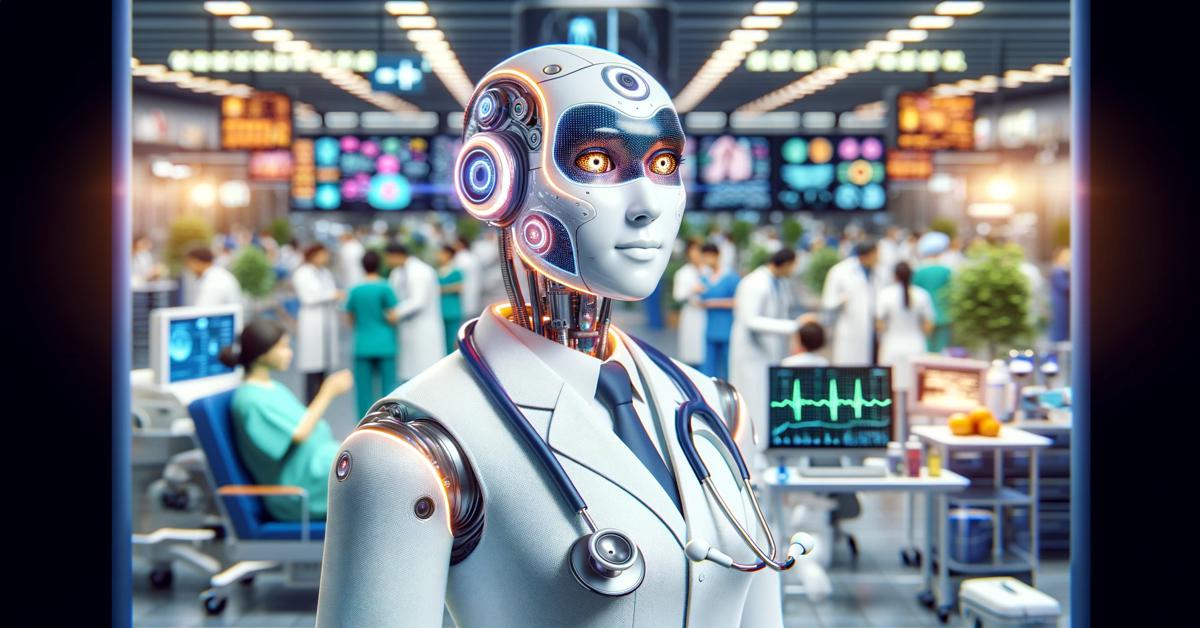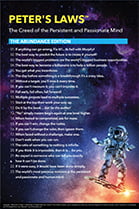
Why do bowhead whales live to 200 years old, and Greenland sharks to 400? Why can’t we? Chances are that AI will help us decipher aging—understand why we age, how to slow it, stop it, and perhaps even reverse it.
When ChatGPT passed the U.S. Medical Licensing Exam (USMLE) in early 2023 it was a shocker to many. Passing the USMLE is hard, typically taking 4 years of medical school plus 2 years of residency and a lot of practical experience.
How much further might AI progress in medicine over the next decade?
And what does a partnership between AI and healthcare workers such as diagnosticians, surgeons, nurses, dieticians, healthcare coaches, and radiological techs look like?
I personally believe that medicine is one of the professions that can be, and should be, powered by AI and AI-enabled healthcare workers.
The ability of AI to help analyze mountains of your health data, avoid errors and accurately monitor your conditions 24/7 makes a compelling case for its use to reinvent the healthcare industry.
It may soon be malpractice to diagnose a patient without AI in the loop.
That’s what today’s blog is all about: how the future of medicine requires AI copilots and what this means for the healthcare industry.
Let’s dive in…
NOTE: The power of AI to augment human health, increase our productivity, and ultimately reinvent society is one of the core topics I’ll be exploring at my Abundance Summit next month. Applications will close in a couple weeks. Learn more and apply here.
Hospitals are Dangerous Places to Visit
Health is our new wealth, and today, our healthcare networks—both at doctor’s offices and in our hospitals—are under tremendous pressure and the data shows that it’s literally killing us.
Have you ever heard the notion that “hospitals are the most dangerous place to be sick”?
Disturbingly, hospitals are emerging as perilous territories. A 2020 study by Robert Barrett and Louis Hugo Francescutti drew a chilling comparison: statistically, one stands a better chance of survival on a battlefield than in an American hospital. The deadliest year of the Iraq war witnessed the loss of 904 US service personnel.
Contrastingly, during the same period, of the 35.1 million Americans who sought hospital care, an estimated 400,000 succumbed to preventable errors. This doesn't even account for those who died of natural causes or other ailments. In raw numbers, one's risk of dying due to hospital errors was greater than a soldier's in the Iraq war's most lethal year.
Over a decade ago, a report by the Institute of Medicine delivered a jarring statistic: up to 98,000 deaths per year in hospitals were attributed to medical errors. This included misadministered medications, dosage miscalculations, and more.
Furthermore, healthcare-associated infections (HAIs) have become a global menace, with the Centers for Disease Control and Prevention (CDC) attributing 1.7 million infections and 99,000 associated deaths annually to them in the US alone.
Can medical AI copilots help avoid many of these issues?
I truly believe so.
Your Physician is Overworked & Drowning in Data
Now, let’s look at your typical doctor’s visit.
The amount of precious face time that a physician and patient spend together in the doctor’s office is under incredible pressure. The 2017 Medscape Physician Compensation Report found overall that 30% of physicians spend 17-24 minutes with each patient, and that 29% spend only 13-16 minutes during a patient visit.
Making the situation even worse is the average wait time required for a patient to get in to see their physician.
According to a May 2023 report in the health and medicine publication STAT, new patients now wait an average of 26 days for an appointment.
This strained system isn't merely a consequence of increased demand. The supply side is crumbling too. The aftermath of the COVID-19 pandemic unveiled a grim reality—staffing shortages. Since 2020, one in five healthcare workers have resigned, with 117,000 physicians exiting the workforce in 2021 alone, and a paltry 40,000 joining back.
There’s one more major challenge with today’s traditional “doctor-patient” relationship. Your doctor is probably way behind the times technically, and unable to deal with the explosion of diagnostic data available for each of their patients.
Here are 3 specific points that exemplify what I mean:
1. A 2003 report from the Institute of Medicine in Washington, D.C., estimated that the time between “discovery to adoption” in clinical care can average 17 years! Meaning that a medical breakthrough won’t reach you as a patient for nearly two decades... And that delay was documented 20 years ago! Since then, the rate of medical breakthroughs has exploded, accelerating at exponential speeds.
2. Next, consider the avalanche of diagnostic data resulting from today’s advanced medical testing. If you spend half a day at a Fountain Life Center getting a medical upload (whole genome sequence, 100+ blood biomarkers, whole-body MRI, Coronary CT scan, Dexa Scan, microbiome, retinal scan, etc.), you and your physician will soon be inundated with 150+ gigabytes of data, which no human physician is able to digest and interpret without the use of an AI copilot.
3. Finally, the speed at which medical discoveries are being made continues to grow exponentially. For example, today there are 28,000 active, peer-reviewed medical journals that are collectively publishing more than 1.8 million articles every year, or roughly 5,000 medical papers published per day.
How many did your physician read this morning?
Your AI medical copilot can consume them all and determine which is most applicable to you.
The Solution: AI-powered Medicine @Home
What does this all mean? It means that medicine is rapidly transforming from something that a human can handle, into a field where an AI copilot is not a “nice-to-have,” but a must-have.
We’re shifting medicine from an annual doctor’s visit to a continuous data-driven, AI-enabled monitoring of your health.
Rather than waiting a month to book your “annual medical checkup,” sensors on your body, in your body, and in your environment (bedroom, bathroom, office, and car) will be constantly monitoring your physiology and uploading data to your medical AI.
The goal here is continuous healthcare monitoring able to catch disease at its earliest stage, allowing treatment as rapidly and early as possible, hopefully forgoing hospital visits altogether, but at a minimum avoiding any prolonged hospital stays.
This field will move quickly and powerfully in this direction, making the best healthcare cheaper and more convenient, year after year.
Why This Matters
The bottom line is that medical AI copilots are coming fast.
They will help fill in the gap of missing healthcare workers and allow you and your physician to integrate the massive datasets coming from your wearables and deep diagnostic monitoring.
Ultimately, this is about making healthcare continuous and convenient, catching disease early and saving lives.
After all, there is nothing more valuable than one’s health:
“A man or women who has their health has a thousand dreams. The person who does not, has but one dream.”
In our next blog in this series, we’ll explore how AI copilots will disrupt education this decade.
70% of all cancers that are fatal turn out to be the result of cancers that are not routinely tested for by today’s medical system. Today, advanced diagnostics are able to evaluate your health on a regular basis, with the goal of finding disease at the earliest stage possible. Every year, I go through a Fountain Life “upload” as part of their APEX Membership program, and I urge you to do the same. Get started with Fountain Life and become the CEO of your health:
I discuss how AI and other exponential technologies will create a world of abundance on my podcast. Here’s a conversation I recently enjoyed:
A Statement From Peter:
My goal with this newsletter is to inspire leaders to play BIG. If that’s you, thank you for being here. If you know someone who can use this, please share it. Together, we can uplift humanity.
Topics: Abundance Entrepreneurship Abundance 360










